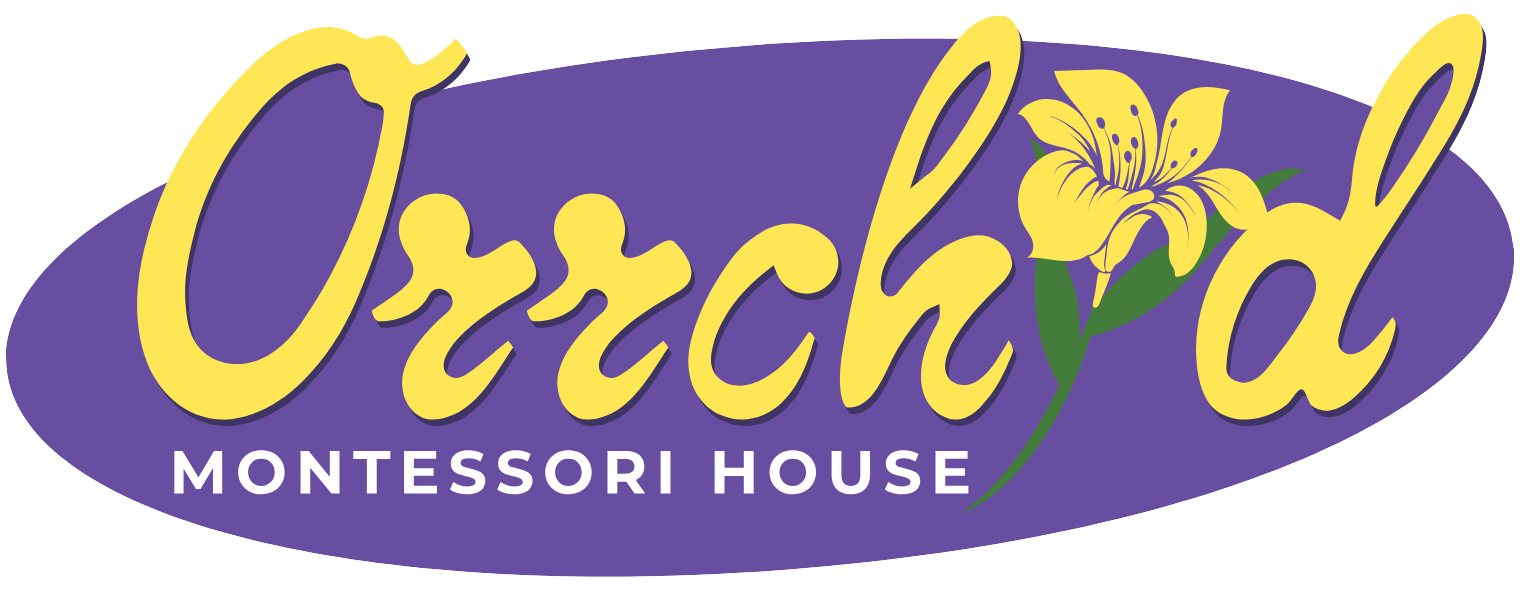From a baby’s first coo to a preschooler’s imaginative storytelling, language development is one of the most exciting parts of early childhood. Communication builds confidence, independence, and social connection. In a Montessori environment, language isn’t taught through memorization. It is nurtured through real-life conversations, hands-on experiences, and an environment rich in meaningful interaction.
At Orrchid Montessori House, we follow a child-centered approach that supports natural language growth. Let’s explore how you, as a parent, can help raise confident communicators using Montessori principles.
The Montessori Philosophy on Language
Dr. Maria Montessori believed that language develops naturally when children are exposed to rich, respectful, and purposeful communication. She emphasized that children are in a sensitive period for language from birth to age six. During this time, their brains absorb vocabulary, tone, and sentence structure almost effortlessly.
In a Montessori classroom, language is integrated into every part of the day. It begins with listening and speaking, followed by writing and reading. The journey unfolds at the child’s own pace, fueled by curiosity, not pressure.
Tips to Support Language Development at Home
1. Speak Clearly and Respectfully
Children learn language by hearing it spoken around them. Speak slowly, clearly, and use real words, not baby talk. Respect your child’s ability to understand. Use a rich vocabulary and speak to them as you would to an adult, with warmth and intention.
For example, instead of saying “doggy,” say “Yes, that’s a golden retriever. It has long, golden fur.”
2. Listen More Than You Speak
Give your child time to respond. Avoid rushing to finish their sentences. When children feel heard, they are more willing to express themselves. Show genuine interest in their thoughts and stories, no matter how simple they may be.
3. Name Everything
Help your child build vocabulary by naming objects, actions, and feelings in daily life. “This is a spatula. We use it to flip pancakes.” or “You look excited. Are you happy because it’s playtime?”
Labeling their experiences helps children connect words with meaning.
4. Offer Real-Life Experiences
Montessori language development is rooted in real experiences. Trips to the market, nature walks, cooking, and gardening all offer opportunities for rich conversations. These activities introduce new vocabulary in a meaningful context.
5. Create a Language-Rich Environment
At home, set up spaces that encourage language exploration. Include books at child height, picture cards, alphabet puzzles, and simple writing tools. Rotate materials to keep interest alive and to introduce new concepts naturally.
4. Read Aloud Every Day
Reading is one of the most powerful ways to support language development. Choose books with clear language, rich illustrations, and rhythm. Engage your child by asking open-ended questions. Let them retell the story in their own words. This strengthens vocabulary, comprehension, and expression.
5. Use Songs and Rhymes
Music helps children learn the rhythm and pattern of language. Sing songs, recite rhymes, and introduce tongue twisters. These fun, repetitive activities build listening skills, pronunciation, and memory.
6. Introduce Phonetic Awareness Gently
Montessori materials like the Sandpaper Letters help children connect sounds to symbols through touch and movement. You can do simple sound games at home. For example, “Let’s find something in the room that starts with the sound /b/.”
Always start with sounds before letter names. This prepares your child for reading and writing in a natural way.
7. Encourage Storytelling and Conversation
Invite your child to share their experiences. “Tell me about your drawing.” or “What did you like most about your walk?” Give them space to speak, even if their thoughts are scattered. This builds confidence and fluency.
You can also model storytelling by sharing your own simple stories from childhood or daily life.
Final Thoughts
Raising a confident communicator doesn’t require fancy tools or technology. It requires presence, patience, and meaningful interaction. At Orrchid Montessori House, we create a language-rich environment where children learn to express themselves with clarity, joy, and confidence.
As a parent, you are your child’s first and most important teacher. With these Montessori-inspired tips, you can support their journey toward becoming thoughtful, articulate, and confident communicators.

